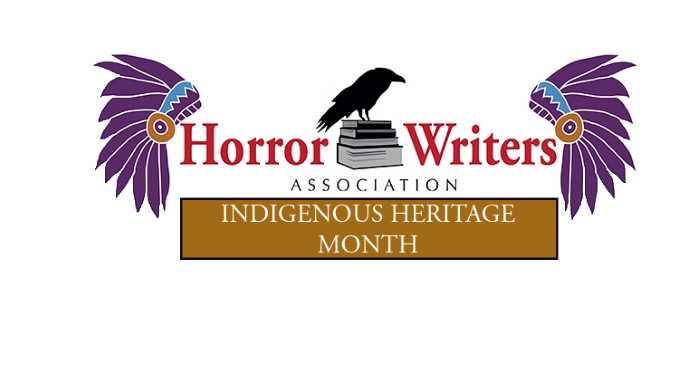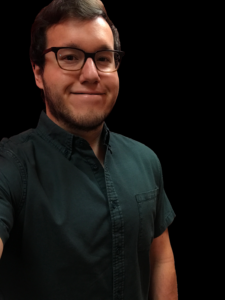Un-Settling Horrortellers: Introduction to Indigenous Heritage Month 2023 By Shane Hawk
 By Shane Hawk
By Shane Hawk
The captivity narrative. The Indian burial ground. The noble savage. The magical Native. Do any of these sound familiar? They’re just a small sampling of negative tropes against Natives that have been tirelessly employed over the last few centuries. Native Americans, Indigenous Americans, Turtle Islanders—whatever you want to call us—comprise one percent of the publishing industry, but dammit, we are smashing down the walls of our literary prisons and removing our metaphorical muzzles because we’ve got some shit to say, and we’ve grown tired of non-Natives writing us a certain way.
Indigenous Heritage Month begins every November 1st, and just like Latinx folks, we have to whisper a small begrudged thank you toward Ronald Regan’s grave because his pen happened to be the one to strike a page way back when to get our heritage weeks recognized before they bloomed into full months of celebration. (So, thanks Reagan, I guess? And Bush—no no, sorry can’t do it.) This month is a great time to delve deep into your bookshelves (or your local bookshop and library) to allow an Indigenous storyteller to enthrall you with their tantalizing tales. It is indeed a great starting point, but remember, we exist during the other eleven months of the year, too, and we are more than happy to see the support and love outside of November’s thirty days. It’s a great month to be grateful, to give love to your Elders, to your family and friends, and to combat the angry white grandpas who are mad that “we as a country no longer respect the Pilgrims” with their hats and their gold-buckle shoes, and their stinkin’ diseases.
The HWA has put great effort into recognizing the need for diversifying Horror and the association itself over the last few years. It’s been so wonderful to see. Owl Goingback has earned the Lifetime Achievement Award and won two Stokers, Jewelle Gomez also has earned a Lifetime Achievement Award, Stephen Graham Jones has won four Stokers, and the HWA has highlighted Indigenous writers just outside of the Horror genre like Daniel H. Wilson, Darcie Little Badger, and Tim Tingle.
Indigenous Horror is a small space to spill blood on the ground, smell the organ meat slopping out of the clawed-open abdomen, but it is growing at a nice pace. My main mission with Never Whistle at Night: An Indigenous Dark Fiction Anthology was to increase that small percentage and rid ourselves of that pesky “less-than” mathematical symbol when it came to describing Indigenous market share of genre works. The anthology has only been out for six weeks, but its status as an international bestseller since its first week (and every week since) has proven that there is an absolute hunger for Indigenous Horror and dark fiction. Over are the days of the non-Native genre writer killing us off after we help the white folks understand the monster’s weaknesses, exploiting our religions, our traumas, our cultures, our “esoteric” folklore. Also, the days wherein Holt McCallany of Mindhunter fame sported brownface to become Navajo in Creepshow 2 are over (“What the hell was that?” all the Natives asked in unison). Like I wrote in the original proposal sent to Penguin Random House: Now it’s our turn. (Or like Barkhad Abdi sternly told Tom Hanks in that one Boat Movie, “We’re da captain now…”)
This HWA interview series for Native American Heritage Month 2023 will allow you to meet (or better know) some names in this ever-growing space and hopefully entice you to check out and support the work of Indigenous Horror writers across the board. Go ahead; don’t be shy. We can’t wait to un-settle you.

Shane Hawk (enrolled Cheyenne-Arapaho, Hidatsa and Potawatomi descent) is a history teacher by day and a horror writer by night. Hawk is the author of Anoka: A Collection of Indigenous Horror and he has other short fiction featured in numerous anthologies. He lives in San Diego with his beautiful wife, Tori. Learn more by visiting shanehawk.com



